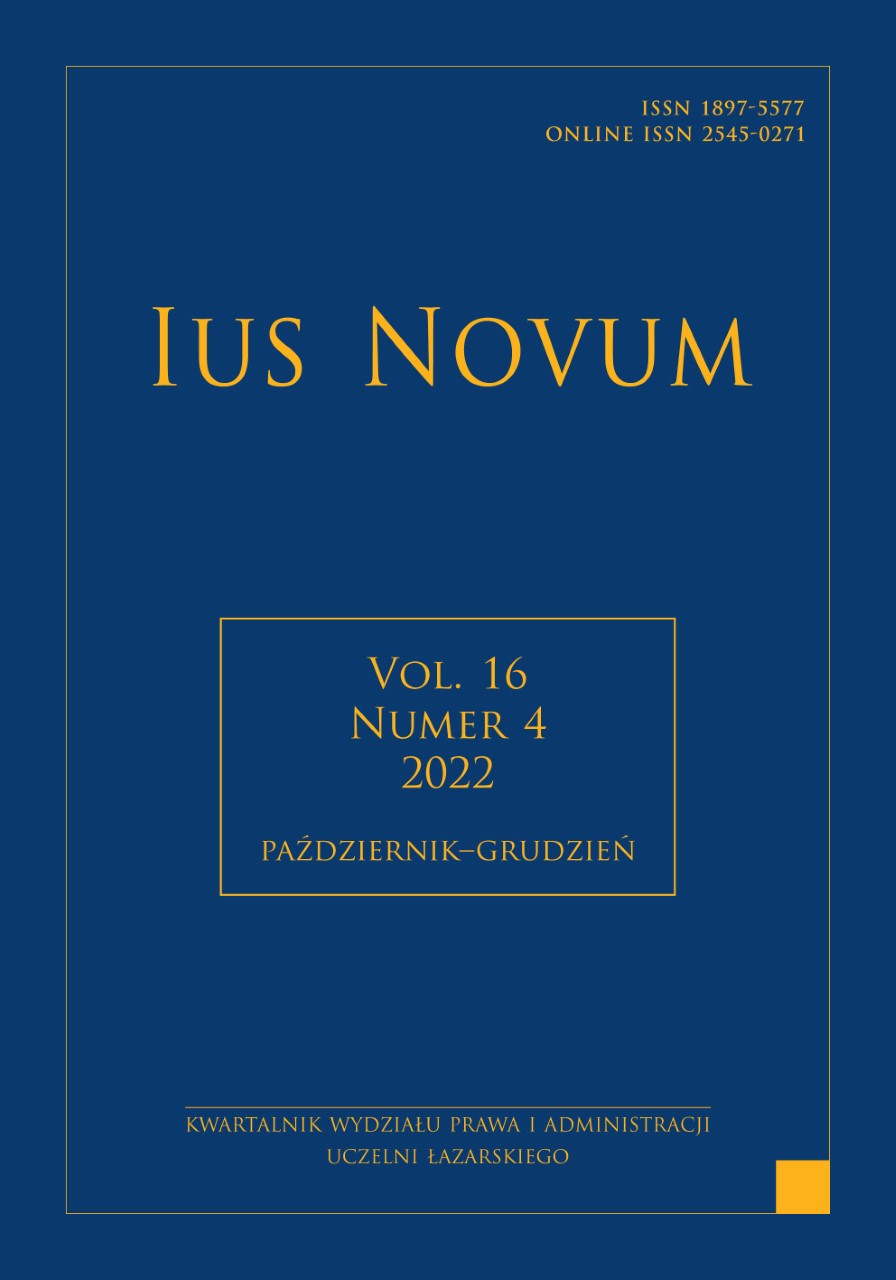Abstrakt
W niniejszym opracowaniu autor akceptuje stanowisko Sądu Najwyższego, iż jeżeli w toku
kontroli kasacyjnej Sąd Najwyższy stwierdzi, że apelacja strony, która wniosła kasację, nie
została uwzględniona, a uzasadnienie wyroku sądu odwoławczego rażąco narusza przepis
art. 457 § 3 k.p.k., zaś w kasacji w oparciu o „jakość” tego uzasadnienia wywodzony jest
zarzut rażącego naruszenia art. 433 § 2 k.p.k. wprost (w treści zarzutu) lub też w uzasadnieniu
kasacji (art. 526 § 1 k.p.k. w związku z art. 118 § 1 k.p.k.), to uchybienie takie wymaga
uchylenia wyroku sądu odwoławczego, albowiem wymaga tego konstytucyjny art. 45 ust. 1
w zw. z art. 176 § 1 Konstytucji RP i konwencyjny (art. 6 EKPCz) standard rzetelnego procesu
odwoławczego, którego norma z art. 537a k.p.k. nie może ograniczać ani też wyłączać. Ten
punkt widzenia uzasadnia fakt, że koncepcja rzetelnego procesu jako modelu postępowania
karnego oznacza zapewnienie minimalnego poziomu gwarancji realizujących stan prawny
(prawa stron), a standard rzetelności postępowania jest elementem modelu rzetelnego procesu.
Jeśli postępowanie odwoławcze ma być in extenso rzetelne, to sąd ad quem jest zobligowany do
rzetelnego wykonania obowiązków wynikających z treści art. 457 § 3 k.p.k., a więc rzetelnego
sporządzenia uzasadnienia wyroku, które nie może sprowadzać się li tylko do niekonkretnych,
ogólnikowych i pasujących do każdej sprawy konstatacji o prawidłowych ustaleniach
faktycznych oraz trafnej ocenie poszczególnych dowodów, gdyż wyżej wymienione zwroty
bez ich powiązania z odpowiedzią na argumenty zawarte w apelacji nie udzielają podmiotowi
wnoszącemu apelację merytorycznej odpowiedzi na kwestie, które stanowiły podstawę
sformułowanych zarzutów. Norma określona w art. 537a k.p.k. nie może zatem ograniczać ani
też wyłączać standardu rzetelnego procesu odwoławczego.
Bibliografia
Błachnio-Parzych A., Kosonoga J., Kuczyńska H., Nowak C., Wiliński P., Rzetelny proces karny w Orzecznictwie Sądów Polskich i Międzynarodowych, P. Wiliński (red.), Warszawa 2009.
Boratyńska K.T., Czarnecki P., Górski A., Koper R., Królikowski M., Lach A., Sakowicz A., Ważny A., Kodeks postępowania karnego. Komentarz. Wydanie 9, Warszawa 2020.
Daszkiewicz W., Prawo karne procesowe. Zagadnienia ogólne, Bydgoszcz 2000.
Grzegorczyk T., Rzetelne postępowanie odwoławcze i kasacyjne, w: J. Skorupka, W. Jasiński (red.), Rzetelny proces karny: Materiały konferencji naukowej. Trzebieszowice, 17–19 września 2009 r., Warszawa 2010.
Koper R., Marszał K., Zagrodnik J., Zgryzek K., Proces karny, J. Zagrodnik (red. nauk.), Warszawa 2021.
Kremens K., Nowicki K., Skorupka J., Proces karny, J. Skorupka (red. nauk.), Warszawa 2020.
Kwiatkowski Z., Rzetelne postępowanie dowodowe przed sądem odwoławczym w procesie karnym, w: D. Szumiło-Kulczycka (red. nauk.), W pogoni za rzetelnym procesem karnym. Księga dedykowana Profesorowi Stanisławowi Waltosiowi, Warszawa 2022.
Marszał K., Proces karny. Zagadnienia ogólne. Wydanie II uzupełnione, Katowice 2013.
Wiliński P., Proces karny w świetle Konstytucji, Warszawa 2011.
Wiliński P., Konstytucyjne gwarancje procesu karnego, w: P. Hofmański (red.), System Prawa Karnego Procesowego, t. I, cz. 1, Warszawa 2013.

